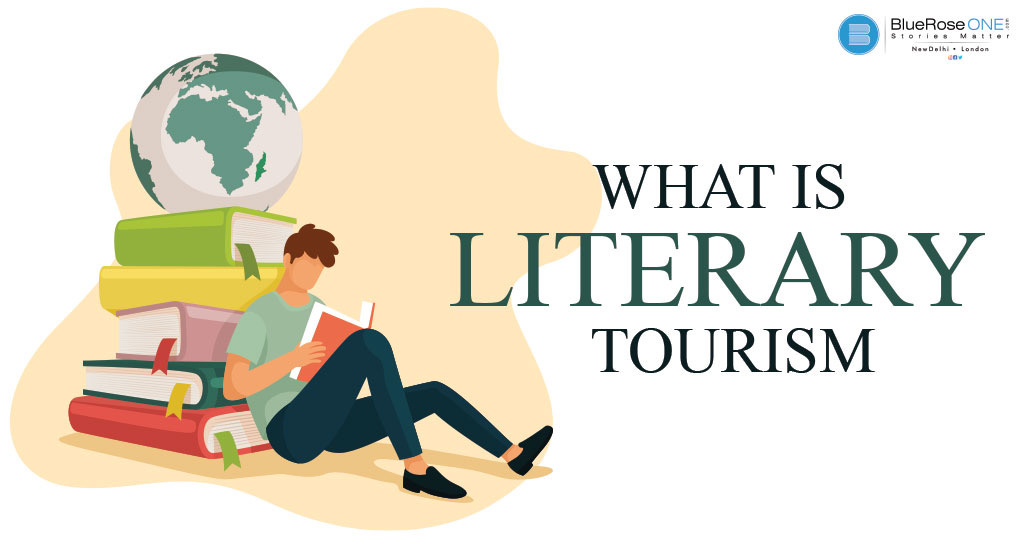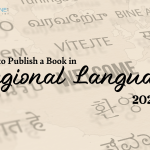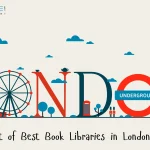Literary tourism, a niche within the broader spectrum of travel, offers a unique and enriching experience for book lovers and literary enthusiasts. It involves visiting places associated with literature, whether they are the settings of beloved novels, the homes of renowned authors, or the locations that inspired literary masterpieces.
Read: Everything to Know about Pragati Maidan New Delhi World Book Fair 2024, New Delhi.
As we delve into the world of literary tourism, we discover how the realms of fiction and reality intertwine, creating a captivating tapestry that beckons readers to step into the landscapes of their favourite books.
Here’s a list of 7 pointers to keep in mind for literary tourism:
- Literary Landscapes: Exploring Fictional Worlds
- Author’s Abode: Literary Pilgrimages to Author’s Homes
- Literary Festivals: Celebrating the Written Word
- Bookish Cities: Urban Centres of Literary Excellence
- Preserving Literary Heritage: Libraries and Archives
- Challenges and Controversies in Literary Tourism
- The Future of Literary Tourism: Nurturing a Love for Reading
Literary Landscapes: Exploring Fictional Worlds
One of the most enchanting aspects of literary tourism is the opportunity to traverse the landscapes that exist within the pages of beloved novels. From the rolling hills of J.R.R. Tolkien’s Middle-earth to the bustling London streets of Arthur Conan Doyle’s Sherlock Holmes mysteries, literary tourism allows readers to immerse themselves in the fictional worlds that have captured their imaginations.
Take, for instance, the magical realm of Harry Potter. The Wizarding World, created by J.K. Rowling, has become a pilgrimage site for fans worldwide. The bustling Diagon Alley and the iconic Hogwarts School of Witchcraft and Wizardry, though products of Rowling’s imagination, have found tangible form in places like the Warner Bros. Studio Tour in London and the Wizarding World of Harry Potter theme parks.
Author's Abode: Literary Pilgrimages to Author's Homes
Literary tourism extends beyond the realms of fiction to the very homes and haunts of revered authors. Visiting the residences of literary giants provides a unique glimpse into the environments that shaped their creative processes. The Brontë Parsonage Museum in Haworth, England, allows visitors to explore the home where the Brontë sisters penned their timeless classics such as “Wuthering Heights” and “Jane Eyre.”
Similarly, the Mark Twain House and Museum in Hartford, Connecticut, offers a fascinating insight into the life of Samuel Clemens, better known as Mark Twain. The rooms where Twain crafted his iconic works are preserved, giving visitors an intimate connection to the author and his creative journey.
Literary Festivals: Celebrating the Written Word
Literary tourism is not confined to physical locations; it also encompasses the vibrant realm of literary festivals. These events serve as bustling hubs where authors, readers, and literary enthusiasts converge to celebrate the written word. Festivals like the Hay Festival in Wales and the Jaipur Literature Festival in India have gained international acclaim for their ability to foster a shared appreciation for literature.
Literary festivals provide a platform for authors to engage with their audience, offering book signings, panel discussions, and readings. Attendees, in turn, have the chance to interact with their favourite writers, gaining deeper insights into the creative process and the inspiration behind their works.
Bookish Cities: Urban Centres of Literary Excellence
Certain cities around the world stand as veritable meccas for bibliophiles, boasting rich literary histories and vibrant book cultures. Paris, often referred to as the “City of Light,” was home to expatriate writers like Ernest Hemingway and F. Scott Fitzgerald during the 1920s. Exploring the streets of Montmartre or sitting in cafes that once hosted these literary luminaries provides a tangible link to the past.
In Dublin, the literary legacy is woven into the fabric of the city itself. The Dublin Writers Museum and walking tours dedicated to James Joyce’s “Ulysses” allow visitors to trace the footsteps of the city’s literary greats. Meanwhile, Edinburgh, with its mediaeval charm, is the birthplace of J.K. Rowling’s Harry Potter series, and the cityscape is dotted with locations that inspired the magical universe.
You may also like: 7 Top Rated Self-Help Books of all time in 2024
Preserving Literary Heritage: Libraries and Archives
Libraries and archives play a crucial role in preserving literary heritage, and they, too, become destinations for literary travelers. The British Library in London houses an extensive collection of manuscripts, rare books, and literary treasures. From the original manuscript of Lewis Carroll’s “Alice’s Adventures in Wonderland” to handwritten lyrics by The Beatles, the British Library offers a tangible connection to a diverse array of literary and cultural phenomena.
Similarly, the Library of Congress in Washington, D.C., stands as a beacon of knowledge. Its impressive collection includes the personal library of Thomas Jefferson, reflecting not only the literary tastes of a founding father but also the intellectual currents that shaped the early United States.
Challenges and Controversies in Literary Tourism
While literary tourism offers a myriad of enriching experiences, it is not without its challenges and controversies. The delicate balance between preserving the authenticity of literary sites and meeting the demands of tourism can pose a threat to the very essence that draws people to these places. Issues such as overcrowding, commercialization, and the potential degradation of historic sites require careful consideration to ensure the longevity of literary tourism as a meaningful venture.
Moreover, the interpretation of certain literary works or the lives of authors may be contentious. Sites associated with authors who hold controversial views or whose works have been reevaluated in modern contexts can spark debates about the ethics of literary tourism. Striking a balance between acknowledging the historical context and fostering a space for critical reflection is essential to navigating these complex issues.
The Future of Literary Tourism: Nurturing a Love for Reading
As we gaze into the future of literary tourism, there is immense potential to harness its power in fostering a love for reading. Initiatives that promote literacy, education, and cultural exchange can be seamlessly integrated into literary tourism experiences. For instance, partnerships between schools and literary sites can provide students with unique learning opportunities, connecting classroom studies with real-world experiences.
Additionally, the digital realm opens new avenues for literary tourism. Virtual reality experiences, online book clubs, and interactive platforms can extend the reach of literary tourism to a global audience. Whether someone is halfway across the world or just a few miles away, the magic of literary exploration can be shared and celebrated through digital mediums.
Read: Amazon Ads for Authors: How Authors Can Promote Their Books Through Amazon Ads
In conclusion, literary tourism transcends the boundaries of traditional travel, inviting individuals to embark on journeys that intertwine fiction and reality. From the fictional landscapes of beloved novels to the homes of literary greats, from bustling literary festivals to bookish cities, each facet of literary tourism contributes to a rich tapestry that celebrates the written word.
While challenges and controversies may arise, the enduring appeal of literary tourism lies in its ability to kindle a passion for reading, foster cultural understanding, and provide a bridge between the past and the present. As we navigate the landscapes of literature, we discover that the magic of storytelling extends far beyond the pages of a book—it lingers in the places, the people, and the shared experiences that make literary tourism a truly enchanting endeavor. So, whether you’re tracing the footsteps of your favourite characters or standing in the study where a classic was penned, literary tourism invites you to unveil the magic of literary exploration.
You may also like: Publish your book with Amazon Self-Publishing in 2024
















